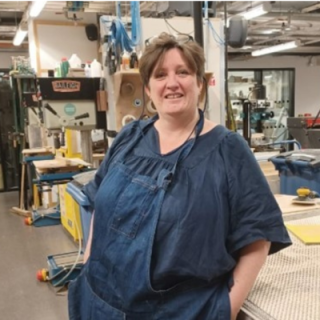General Workshop & Laboratory Services - Grade 7
Example job roles: Senior Specialist, Senior Technician/Senior Workshop Technician, Senior Manufacturing Technician, Database Officer, Lab Coordinator, Laboratory Manager, Stores Manager, AIT Engineer
Level: Independent
Experiences
Activities and responsibilities likely to be required when working at this level
Health & Safety responsibilities
- Liaise with suppliers and manufacturers to resolve problems and investigate replacement options
- Advise on equipment capabilities demonstrating how results can be achieved
- By developing local procedures, establish and maintain a safe/compliant working environment
- Oversee compliance tasks ensuring timely completion and maintenance of appropriate records
- Complete accident reporting and assist with investigations
Core responsibilities
- Provide management, motivation and support to a technical team of broad remit
- Schedule, prioritise and monitor work and performance in line with demands and deadlines
- Assist with aspects of the recruitment process of technical staff
- Hold delegated responsibility from the academic lead for the planning, operation and supervision of a variety of laboratory spaces
- Work collaboratively with other areas to ensure efficiency and elimination of duplicated effort
- Organise and facilitate progress and management meetings
- Be a key contributor to service development, delivery and planning
- Contribute to and support change
- Oversee local record keeping, inventory and asset management
- Supervise all stores operations
- Source and negotiate with suppliers for a range of items including specialist parts/equipment
- Create, update and implement procedures to deliver an aligned, efficient and effective service
- Provide a broad range of skilled research support
- Support taught course projects by delivering skilled technical support
- Prepare and manufacture a range of specimens/samples with limited direction
- Support or oversee small- and large-scale building works
- Manage local access arrangements and/or processes
- Design, develop and deliver inductions, demonstrations and training covering a broad range of activities (not limited to techniques and equipment)
- Assist managers with the identification of training and development needs
- Develop a broad knowledge and skills base, sharing with others
- Mentor junior staff
- Conduct lab inspections
Personal and professional development
Development options to consider when working towards this level
Learning on the job
- Take leadership responsibility for short term cover during periods of annual leave
- Develop specialised knowledge in a specific area of responsibility
- Contribute to strategic processes e.g. calculate costing and recharges for facilities (applicable to smaller non-TRAC facilities only)
- Working on new technology, involvement in research projects
- Contributing to a project led by a specialist
Learning from others
- Shadow other team members in their area of responsibility
- Seek out secondment opportunities
- Join a Community of Practice
- Access mentoring support from a colleague or local mentoring scheme
Formal learning
- Specific health and safety training e.g. formal safety qualifications
- Industry recognised qualifications/training
- Accreditation/certification from a recognised Professional body
- UCL Leadership and/or Management training
Transferable skills and competencies
UCL uses the Universal Competency Framework (UCF) to discuss transferable skills. Find out more details on the framework.
Planning and organising
- Setting objectives
- Planning
- Managing time
- Managing resources
- Monitoring progress
Coping with pressure and setbacks
- Coping with pressures
- Showing emotional self-control
- Balancing work and personal life
- Maintaining a positive outlook
- Handling criticism
Analysing
- Analysing and evaluating information
- Testing assumptions and investigating
- Producing solutions
- Making judgements
- Demonstrating systems thinking
UCL Ways of Working
These describe expected behaviours in line with UCL culture and values. For Ways of Working indicators and steps to development please refer to the Ways of Working website.
4 January 2024
“Career Pathway roles are indicative and are not intended to be a description of the role in terms of responsibilty and duties.
Job family
Find out more about the General Workshop & Laboratory Services job family.
Other General Workshop & Laboratory Services profiles:
Print versions
Career Case Studies
Progression can lead to these type of General Workshop and Laboratory Services roles.

Niamh Grace
Workshop Manager, The Bartlett Manufacturing and Design Exchange (B-made)
 Close
Close

